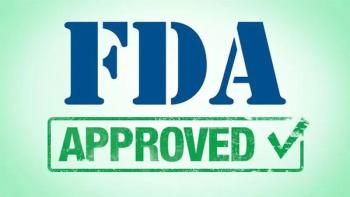
Benefits and Risks of Direct to Consumer Genetic Testing for Cancer
Direct-to-consumer genetic testing enables individuals to pursue testing independently and without interference from a healthcare professional. But is there a downside?
Proponents of direct-to-consumer genetic testing (DTCGT) acknowledge that it enables individuals to pursue testing independently and without interference from a healthcare professional.1 Genetic testing may help people better understand health risks and motivate them to engage in a healthier lifestyle.2 Another possible benefit is that they have some control over privacy and whether or not the information will be placed in their medical records.3 DTCGT may also raise public awareness of the importance and role of genetic testing in healthcare.4
DTCGT is not comprehensive genetic testing.5 In fact, the new 23andMe test only tests for 3 mutations on the BRCA1/2 genes for which there are well over 1,000 known mutations. It does not test for the many other genes associated with increased risk for developing breast cancer. It is not even close to comprehensive genetic testing, and consumers may or may not understand this.
Consumers are at risk for being misled by the results of unproven or invalid tests as well as tests that have limited clinical utility. Without guidance from a healthcare provider, they may make important decisions about treatment or prevention based on inaccurate, incomplete, or misunderstood information about their health. For example, a woman who tests negative for the 3 founder BRCA mutations may mistakenly conclude she does not have elevated risk for developing cancer when she actually harbors another breast cancer susceptibility gene that has implications for her health and healthcare as well as that of her siblings, offspring, and other relatives.
Conversely, the individual who has undergone testing may engage in inappropriate and potentially harmful health-related behaviors if the risk is overestimated. Genetic testing provides only one piece of information about a person’s health—other genetic and environmental factors, lifestyle choices, and family medical history also affect a person’s risk of developing many disorders. These factors are discussed during a consultation with a doctor or genetic counselor, but in many cases are not addressed by DTCGT.
Psychosocial distress for the individual and the family following DTCGT is another concern. Without genetic counseling prior to genetic testing, an individual may not be emotionally ready to learn that they have increased risk for developing a disease for which there may or may not be a means to decrease or mitigate the risk and can be associated with an increase in distress.2
In DTCGT, true informed consent may not be possible because the risks and limitations of testing are often described in the fine print and in footnotes on the website.
A content analysis of 23 health-related DTCGT websites found that information about the benefits of the testing outweighed information about its risks and limitations by a ratio of 6 benefits to 1 risk or potential limitation of testing.6 Also, buried in the fine print is information about how the genetic testing company can use data, often to their financial advantage, without further compensation to the consumer. Fine print may include information that data may be shared with research partners, including commercial partners or perpetual, royalty-free, worldwide, transferable license to utilize the extracted DNA for other research.7
An important component of pretest genetic counseling with a credentialed genetics professional is a discussion of the risks and possibilities of discrimination with genetic testing. Although there are federal protections against discrimination for employment and health insurance through the Genetic Information Nondiscrimination Act (GINA), individuals undergoing DTCGT might not fully understand the risks for trying to obtain more life, long-term care, or disability insurance.8 During pretest genetics counseling, credentialed genetics providers carefully review this information.
References
- Gollust SE, Gray SW, Carere DA, et al. Consumer Perspectives on Access to Direct-to-Consumer Genetic Testing: Role of Demographic Factors and the Testing Experience. Milbank Q. 2017;95(2):291-318. doi: 10.1111/1468-0009.12262.
- Barton MK. Health behaviors not significantly changed by direct-to-consumer genetic testing. CA: Cancer J Clin. 2017;67(3):175-176. doi: 10.3322/caac.21368.
- Su P. Direct-to-consumer genetic testing: a comprehensive view. Yale J Biol Med. 2013;86(3):359-365.
- Covolo L, Rubinelli S, Ceretti E, Gelatti U. Internet-Based Direct-to-Consumer Genetic Testing: A Systematic Review. J Med Internet Res. 2015;17(12):e279. doi: 10.2196/jmir.4378.
- Wynn J, Chung WK. 23andMe paves the way for direct-to-consumer genetic health risk tests of limited clinical utility. Ann Intern Med. 2017;167(2):125-126. doi: 10.7326/M17-1045.
- Singleton A, Erby LH, Foisie KV, Kaphingst KA. Informed Choice in Direct-to-Consumer Genetic Testing (DTCGT) Websites: A Content Analysis of Benefits, Risks, and Limitations. J Genet Couns. 2012;21(3):433-439. doi: 10.1007/s10897-011-9474-6.
- Phillips AM. Reading the fine print when buying your genetic self online: direct-to-consumer genetic testing terms and conditions. New Genetics and Society. 2017;36(3):273-295.
- Evans BJ. HIPAA’s Individual Right of Access to Genomic Data: Reconciling Safety and Civil Rights. Am J Hum Genet. 2018;102(1):5-10. doi: 10.1016/j.ajhg.2017.12.004.
Newsletter
Knowledge is power. Don’t miss the most recent breakthroughs in cancer care.




















































































